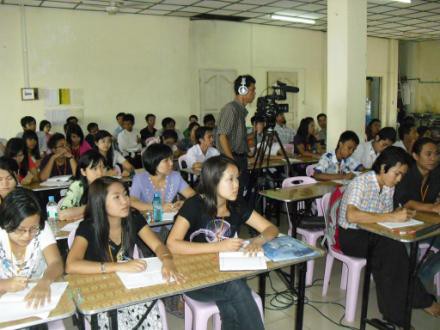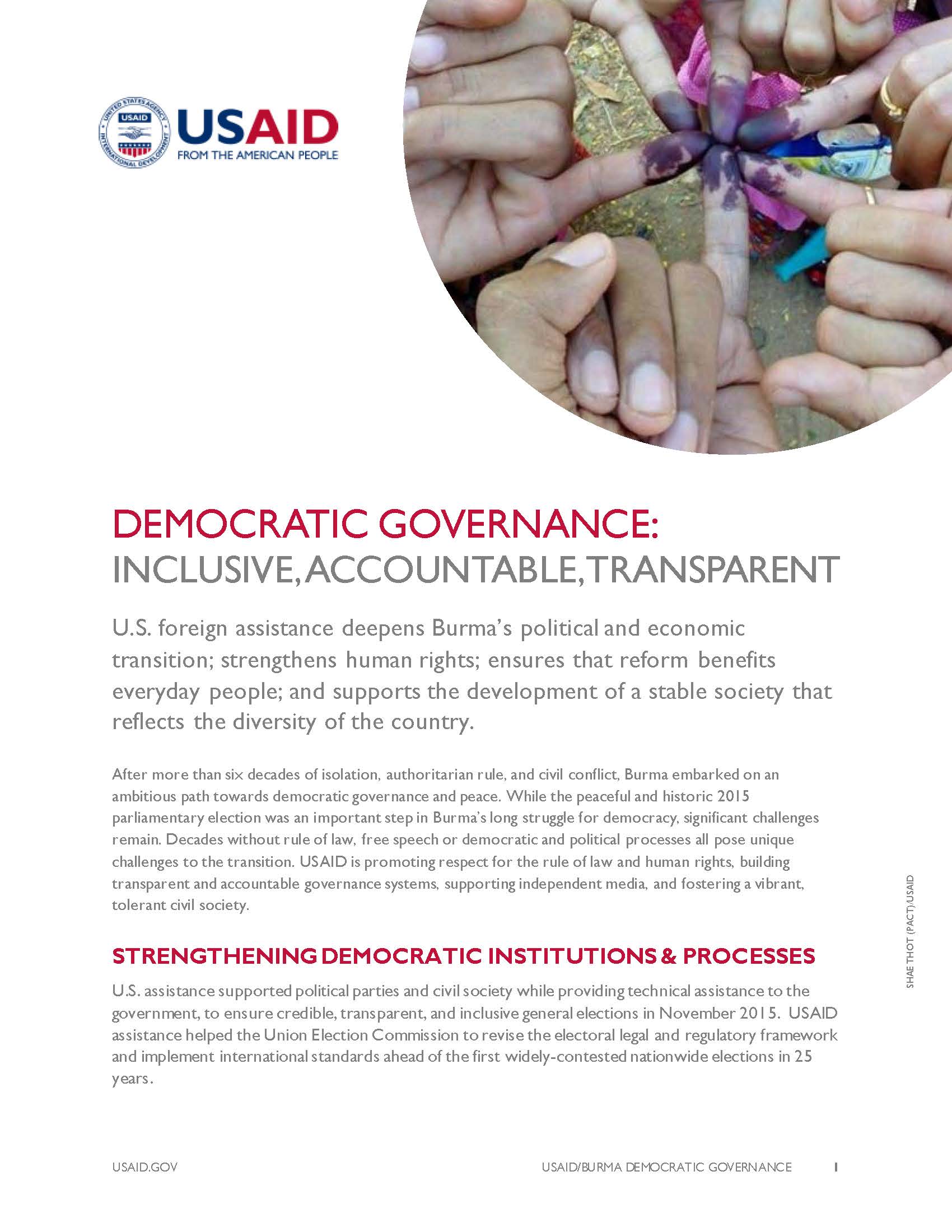
OVERVIEW
U.S. foreign assistance deepens Burma’s political and economic transition; strengthens human rights; ensures that reform benefits everyday people; and supports the development of a stable society that reflects the diversity of the country.
After more than six decades of isolation, authoritarian rule, and civil conflict, Burma embarked on an ambitious path towards democratic governance and peace. While the peaceful and historic 2015 parliamentary election was an important step in Burma’s long struggle for democracy, significant challenges remain. Decades without rule of law, free speech or democratic and political processes all pose unique challenges to the transition. USAID is promoting respect for the rule of law and human rights, building transparent and accountable governance systems, supporting independent media, and fostering a vibrant, tolerant civil society.
STRENGTHENING DEMOCRATIC INSTITUTIONS & PROCESSES
U.S. assistance supported political parties and civil society while providing technical assistance to the government, to ensure credible, transparent, and inclusive general elections in November 2015. USAID assistance helped the Union Election Commission to revise the electoral legal and regulatory framework and implement international standards ahead of the first widely-contested nationwide elections in 25 years.
EXPANDING HUMAN RIGHTS AND ACCESS TO JUSTICE
U.S. assistance empowers all people to participate in and contribute to the democratic development of the country. USAID supports reform efforts in the legislative, judicial, and executive branches to ensure tangible benefits from the transition reach communities throughout the country. Assistance has enabled civil society to reverse laws restricting basic freedoms and advance legislation promoting the rights of civil society organizations and disabled persons and ensuring protection from gender-based violence.
KEY RESULTS
- Partnered with over 300 civil society organizations in all states and regions to undertake voter education and election observation training courses; trained over 5,000 domestic observers; reached 18 million cell phone users with voter education messages via text.
- Supported Burma’s first non-partisan, independent, election-observation organization, the People’s Alliance for Credible Elections (PACE).
- Trained over 11,000 political party members from 84 political parties to improve their ability to effectively communicate with constituencies and voters across the country, including 234 incoming Parliamentarians.
- Developed a Parliamentary Resource Center, now a “center of gravity” for many Parliamentarians not only to better represent their constituencies by becoming more knowledgeable about relevant issues, but to receive support for legislative research, gain access to the internet, and meet together with other Parliamentarians and members of civil society.
- Supported the government to hold a public consultation process—the first of its kind in Burma—on the draft Land Use policy.
- Awarded 12 rule of law grants to local civil society organizations to provide mediation services, victim’s services for gender based violence, and paralegal services for more than 1,400 people.
- Supported the Office of the Supreme Court to develop a national case management strategy and an automated case reporting system.
- Taught more than 600 judges and 200 state law officers on due process, case analysis, judicial ethics, legal drafting, and public outreach.
USAID IS COMMITTED to supporting the people of this country in their pursuit of democracy, economic development, and national reconciliation.









Comment
Make a general inquiry or suggest an improvement.